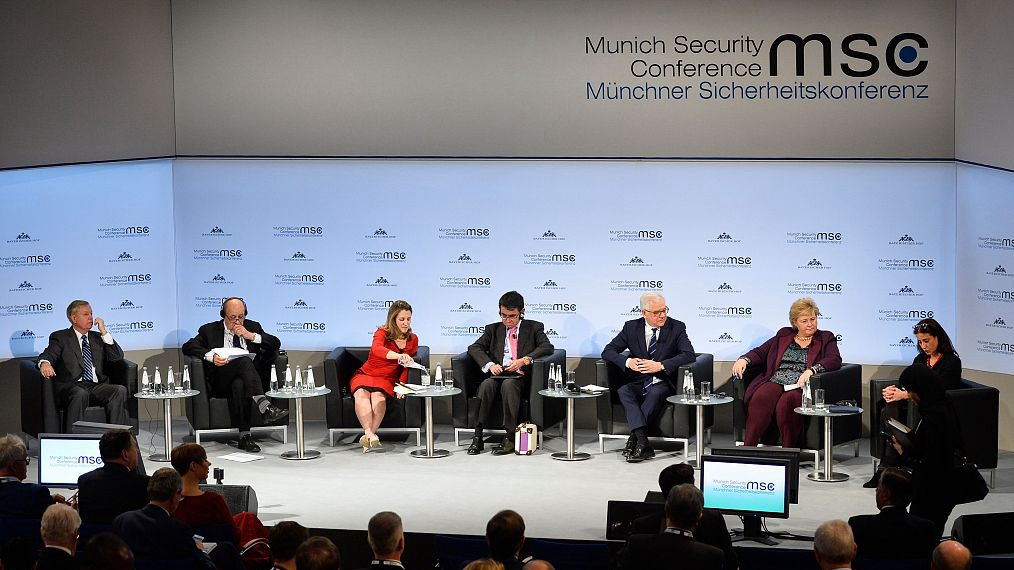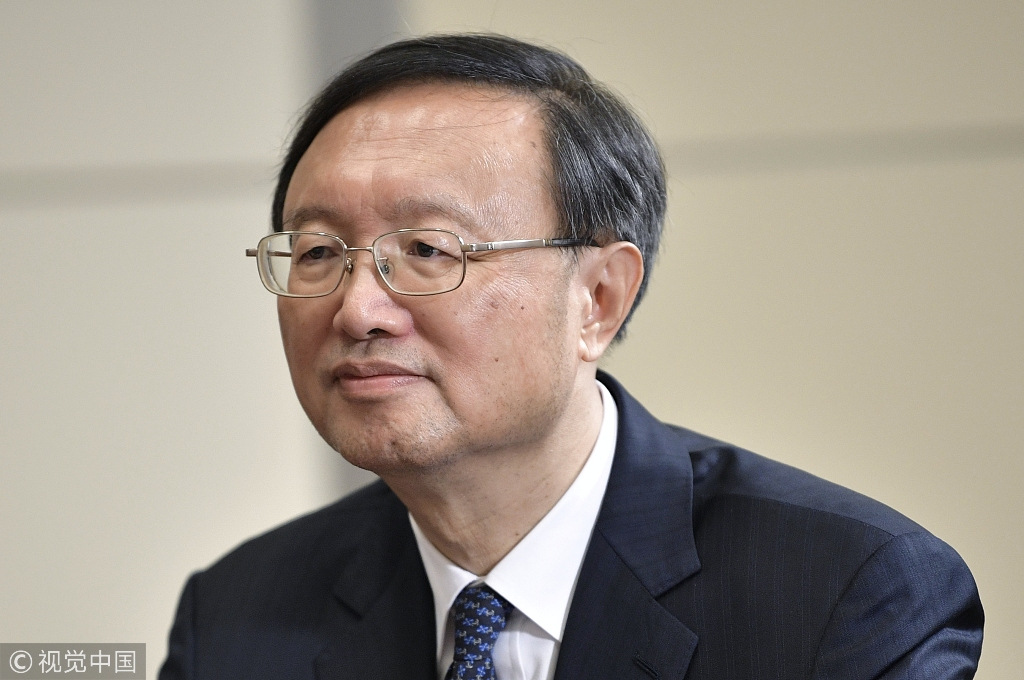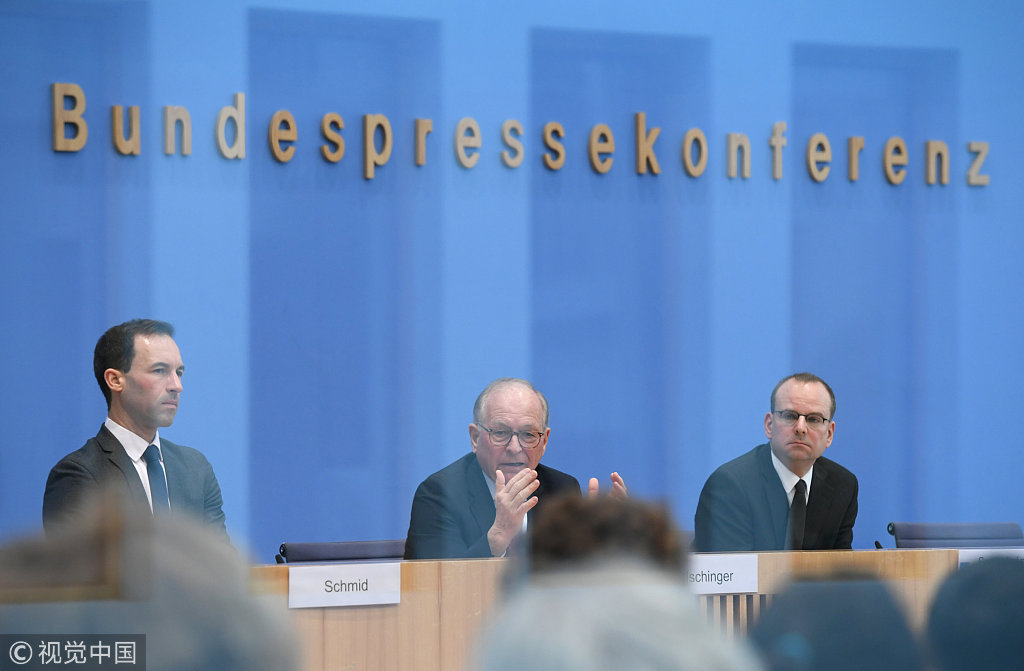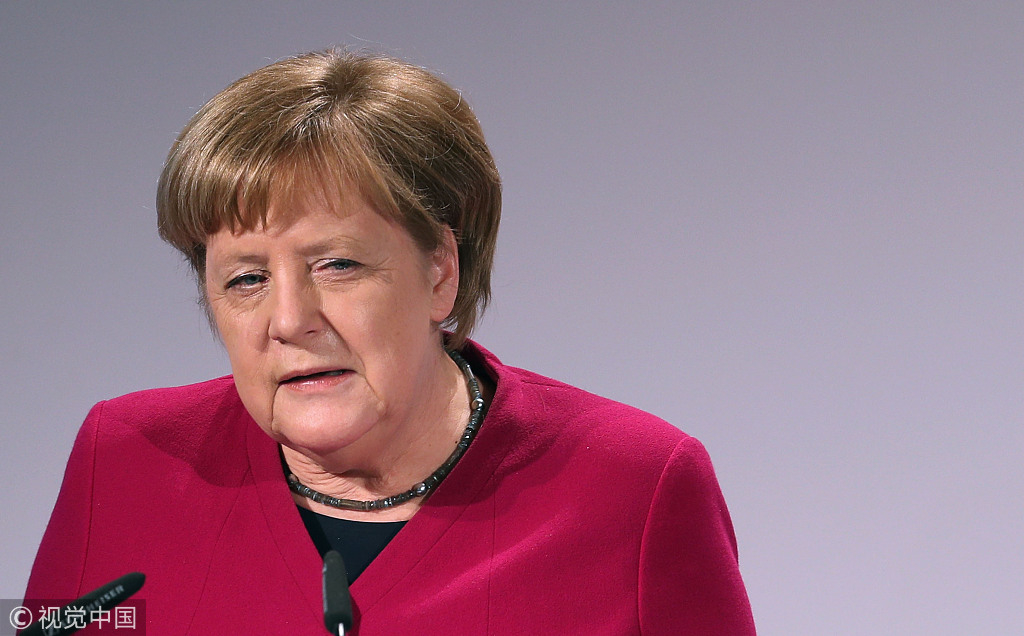
Opinion
10:25, 17-Feb-2019
Bigger pictures and foresight are needed to solve 'The Great Puzzle'
Hu Hong

Editor's note: Hu Hong is an assistant research fellow at the Department for European Studies at the China Institute of International Studies. The article reflects the author's opinion and not necessarily the views of CGTN.
On Saturday, senior Chinese official Yang Jiechi delivered a keynote speech during the 55th Munich Security Conference (MSC) in Munich, Germany.
While other speakers seem to be in intense “crossfire,” Yang's speech brought some fresh air to the Bayerischer Hof Hotel venue. His speech clearly delivered China's message to the decision-makers: multilateralism rather than unilateralism, dialogue rather than confrontation. These are also what the MSC is about and what the world urgently needs nowadays.
As conference chief Wolfgang Ischinger, the veteran diplomat and former German ambassador to the U.S. put it, this year's MSC is the “largest and most important” one since its founding more than 50 years ago.

Yang Jiechi, a member of the Political Bureau of the Communist Party of China (CPC) Central Committee, during a meeting with Russian President Vladimir Putin in Sochi, Russia, August 15, 2018. /VCG Photo
Yang Jiechi, a member of the Political Bureau of the Communist Party of China (CPC) Central Committee, during a meeting with Russian President Vladimir Putin in Sochi, Russia, August 15, 2018. /VCG Photo
An "unprecedented number" of international decision-makers are taking part in the event. Yang's attendance shows China attaches high importance to this MSC. Yang Jiechi, as a member of the Political Bureau of the Communist Party of China (CPC) Central Committee and director of the Office of the Foreign Affairs Commission of the CPC Central Committee, is the most senior Chinese representative to the MSC since 1999.
The U.S. has also sent the largest delegation of all time to Munich, headed by Vice President Mike Pence. German Chancellor Angela Merkel and numerous other heads of state and heads of government are also present.
What makes this year's MSC so special?
New crises are emerging at an unprecedented rate while the traditional wisdom of diplomacy is being challenged radically. That's why this year's Munich Security Report is called “The Great Puzzle: Who Will Pick Up the Pieces.”
Never have so many issues of fundamental importance to the multilateral system been put into a debate in the MSC like this year. Top issues like the Intermediate-range Nuclear Forces Treaty, the Iran nuclear deal and trade disputes have all been mentioned in speeches.

Munich Security Conference (MSC) chairman Wolfgang Ischinger presents the Munich Security Report for 2019 in Berlin, Germany, February 11, 2019. /VCG Photo.
Munich Security Conference (MSC) chairman Wolfgang Ischinger presents the Munich Security Report for 2019 in Berlin, Germany, February 11, 2019. /VCG Photo.
Moreover, like Ischinger said ahead of the conference, “the world is not just witnessing a series of smaller and bigger crises, but that there is a more fundamental problem.”
The darkest side of power politics: unilateralism, confrontation, and closure, has been revealed to the world and played more frequently than any period since the end of WWII.
Meanwhile, the value of multilateralism, international cooperation, which are the pillars of the postwar international order, is no longer cherished and has been put in peril.
China certainly shares the same concern. As Yang said in his speech, "The world is at a critical crossroads of unilateralism and multilateralism, confrontation and dialogue, closure and openness." Therefore, he continued, we need multilateralism “now more than ever.”
The theme of Yang's speech, “advocating international cooperation, upholding multilateralism, promoting a community with a shared future for mankind,” was carefully chosen and reflects China's thoughts on how to put international affairs back on the right course.
Yang further specified China's understanding of multilateralism: the principle of sovereign equality as the most important norm governing state-to-state relations, dialogue and consultation as an important approach to sound global governance in today's world, rule of law as central to the pursuit of law-based international relations, win-win cooperation as an essential of achieving joint development.

German Chancellor Angela Merkel speaking at the 55th Munich Security Conference (MSC) in Munich, Germany. February 16, 2019. /VCG Photo
German Chancellor Angela Merkel speaking at the 55th Munich Security Conference (MSC) in Munich, Germany. February 16, 2019. /VCG Photo
And all these elements are reflected in Chinese President Xi Jinping's idea of a community of shared future for mankind, which is to build an open, inclusive, clean and beautiful world that enjoys lasting peace, universal security and common prosperity.
Later in his speech, Yang also set out China's ideas to “advance international cooperation, uphold and develop multilateralism, and make the international order more just and equitable.”
Four main points are particularly emphasized by Yang: forging partnerships through mutual respect, upholding universal security through mutual support, fostering global development and prosperity through win-win cooperation, improving global governance through reform and innovation.
The arrangement of the session that Yang took part in was meticulously designed by the organizer. Representatives of the U.S., China and Russia, the three countries being accused by some of “unfolding a great power competition” in the Munich security Report gave speeches in the same session.
However, compared with U.S. Vice President Mike Pence and Russia Foreign Minister Sergey Lavrov who pointed fingers at each other and other international players, Yang's speech shows that China is not interested in being part of such a competition. Instead, China is seeing the bigger picture and being far-sighted at solving “The Great Puzzle.”
(If you want to contribute and have specific expertise, contact us opinions@cgtn.com.)

SITEMAP
Copyright © 2018 CGTN. Beijing ICP prepared NO.16065310-3
Copyright © 2018 CGTN. Beijing ICP prepared NO.16065310-3